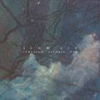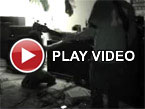Slow Six, "Tomorrow Becomes You"
 From the joyous opening song to the last note of the final track I am captivated by the fierce instrumentation and solemn warmth of Slow Six. Serious yet playful they remind me that I don't need to jump out of an airplane or ski down the alps to experience the rush of exhilaration; all I have to do is turn on my stereo and put on this beautiful record.
From the joyous opening song to the last note of the final track I am captivated by the fierce instrumentation and solemn warmth of Slow Six. Serious yet playful they remind me that I don't need to jump out of an airplane or ski down the alps to experience the rush of exhilaration; all I have to do is turn on my stereo and put on this beautiful record.
Owing perhaps to their classical training, the album unfolds like a symphony. They really know how to wield tension: building it up and releasing it in bursts; soaring high and then laying fallow—but not utterly inactive—as the various strains of their playing resolve themselves. “The Night You Left New York” is their opening sonata. With a devastating pulse whipped out on the drum kit, a crunchy and melodic guitar hook courtesy of Stephen Griesgraber I am pulled right in. The two violins swirling around each other lift me off the ground and carry me upwards like dry leaves in the autumn wind. Colorful electronic treatments of the instruments become apparent towards the end.
“Cloud Cover” in two parts is a slow movement. Here they explore one of my favorite features in music for the last sixty or so years: the use of a radio as an instrument in and of itself. Scanning the airwaves for signs of life, bits of static and atmospheric scree merge with the lulling violin and organic electronics. What is most impressive about the electronic aspect of this group is the fact that Christopher Tignor, who is the lead violinist and songwriter, writes his own software used for the live processing of the other instruments. It doesn't take a genius to go out and buy or download a music program for the computer and get it to cough up some weird sounding garbage, but it does take serious dedication to write programs from scratch and coax them into producing the desired sounds. In this respect Slow Six are part of a tradition that stretches back to the academic composers who first explored the possibilities in music opened up by computers. There is however nothing dry, dusty, or doddering about what they do. The radio voices, now manipulated so as to be wondrously unintelligible, bleed into the next track, “Because Together We Resonate,” which steps the pace up a notch again. From here on out they don't let up. The tension aforementioned is again held in perfect balance, escalating and descending, only the ingress and regress happen swiftly now. The guitar and violins dance around each other, moving expertly as clockwork without sounding at all mechanical.
“These Rivers Between Us” executes the album flawlessly with a smooth, but upbeat, and heartfelt finish. It is an inspired anthem building and elaborating upon the themes first heard in the albums opener. Theo Metz again shows his mastery of the drums by laying down a spell-binding foundation, joined by the low toned melody Rob Collins plunks down on the rhodes. Over top of this the guitarist and two violinists ascend to heavenly heights. In just under an hour they have unraveled the yarn of their musical structures and not only weaved it back together again, but have layered in new designs. Tommorrow Becomes You is definite an early choice for what will be on my best of year list for 2010.
samples:



